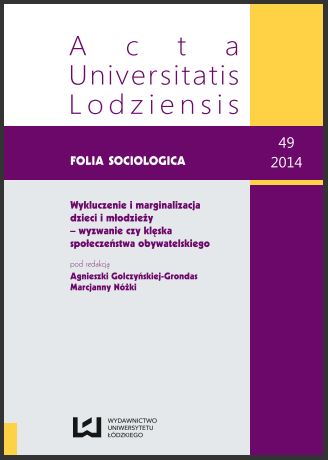NIE CHCĄ CZY NIE MOGĄ? NAUCZYCIELE O SWOJEJ ROLI W REDUKOWANIU SPOŁECZNYCH NIERÓWNOŚCI EDUKACYJNYCH.
Not willing to or not able to? Teachers on their role in addressing social inequalities in education.
Author(s): Marta ZahorskaSubject(s): Social Sciences
Published by: Wydawnictwo Uniwersytetu Łódzkiego
Keywords: teachers; school; educational inequalities
Summary/Abstract: Sociologists of education are often divided into those who are interested in ‘macro’ and those interested in ‘micro’ theories. This paper is an attempt to show how it is difficult to explain what is taking place in schools by concentrating only on the micro (school) level. Explanation should be sought in school system, educational politics, etc. My paper presents the initial conclusions of my research on educational inequalities, which is being conducted at primary and middle schools in several towns and villages in Poland. It is not an article on educational inequalities per se; the purpose of this paper is much more limited. The aim of the project is to present the opinions of teachers with regard to the possibilities of schools to reduce inequalities. The statements made by teachers of various classes and schools, located in both small and big towns, will be compared. The particular feature of this research lies in its methodology. We used qualitative and not quantitative methods, the latter of which are the most popular in analyzing educational inequalities. We were interested in the mechanisms involved in the categorization of ‘good’ and ‘bad’ students. Our study is based on the observation of selected classes, interviews (IDI) with teachers, school principals and school counsellors. We also talked with representatives of local governments, who were responsible for education, and representatives of social care institutions, but this paper focuses only on the interviews conducted in the schools.
Journal: Acta Universitatis Lodziensis. Folia Sociologica
- Issue Year: 2014
- Issue No: 49
- Page Range: 129-146
- Page Count: 18

